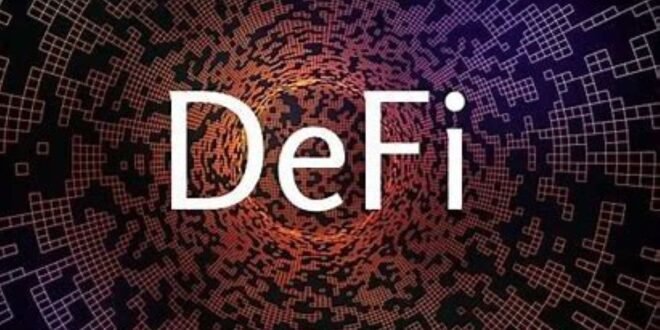Decentralized Finance (DeFi) has revolutionized the way we think about finance, offering open, permissionless platforms for trading, lending, borrowing, and more. While DeFi has democratized access to financial services, it’s not without its flaws. One of the most insidious issues currently plaguing the ecosystem is Miner Extractable Value (MEV) and the practice of front-running, which can severely hurt traders and distort the true value of decentralized markets.
In this article, we will dive deep into how MEV and front-running work, why they are harmful, and what can be done to mitigate their impact on DeFi traders.
What is MEV?
Miner Extractable Value (MEV) refers to the profit that miners, validators, or any other actors who control block production can extract by reorganizing, including, or excluding transactions within a block. In simpler terms, it’s the value that these actors can extract by manipulating the transaction order within a block.
While it’s a well-known concept in traditional centralized systems, MEV is even more pronounced in DeFi due to the open and transparent nature of blockchain transactions. Since DeFi transactions are publicly visible on the blockchain before they are confirmed, miners and validators can take advantage of this information to prioritize their own transactions or exploit arbitrage opportunities, essentially front-running other users’ trades.
The Problem with Front-Running in DeFi
Front-running is one of the most harmful outcomes of MEV. It occurs when a miner, validator, or other network participant can observe pending transactions and execute their own trades before those transactions are processed. This allows them to profit from price movements before other traders can react, leading to unfair advantages and significant losses for regular users.
For example, imagine a trader places a large buy order on a decentralized exchange (DEX). If a miner sees this transaction in the mempool (the pool of unconfirmed transactions) and executes a buy order just before the trader’s order is confirmed, they can push the price up, forcing the trader to buy at a higher price. This is front-running in action, and it results in the trader paying more for their position than they would have if the transaction had been processed normally.
This practice undermines the fairness of DeFi protocols, as it disproportionately benefits miners and validators at the expense of regular traders, creating an uneven playing field.
How MEV and Front-Running Impact Traders
The negative effects of MEV and front-running on DeFi traders are manifold:
- Increased Transaction Costs
Front-running leads to slippage, where traders end up paying more than they anticipated for a trade. Since the miner or validator who front-runs the transaction is essentially taking advantage of the price movement caused by the trader’s order, this results in higher transaction costs for those who are unaware or unprepared for the manipulation. - Unfair Market Conditions
DeFi is supposed to provide a transparent and fair environment for all users. However, when a select few can manipulate the order of transactions, it undermines the very premise of a decentralized market. Traders who aren’t in a position to front-run or who don’t have the technical know-how are left at a disadvantage, with the potential for significant losses. - Reduced Trust in DeFi Platforms
As MEV and front-running become more prevalent, traders may lose trust in DeFi platforms altogether. If users feel they are being exploited by miners or validators who are manipulating transactions for personal gain, they may choose to exit the market, stifling the growth of the DeFi ecosystem. - Inefficiency and Unpredictability
The presence of MEV introduces inefficiencies into the system, as transactions are no longer processed in the most logical or optimal order. This results in unpredictable outcomes for traders, as they can never be sure when their transaction will be processed or at what price they will receive their trade.
Solutions to Mitigate MEV and Front-Running
While MEV and front-running are significant challenges for DeFi, there are potential solutions that could reduce their impact and help restore fairness to the ecosystem.
- MEV Protection Tools
Several protocols and tools have been developed to minimize the effects of MEV. For example, Flashbots is a popular initiative designed to provide a transparent way for miners and validators to extract MEV without exploiting regular users. By creating a more structured and visible marketplace for MEV, Flashbots helps to level the playing field for traders. - Privacy Enhancements
Some DeFi platforms are working to incorporate privacy-preserving features, such as zero-knowledge proofs (ZKPs), to hide transaction details until they are processed. This prevents miners and validators from seeing pending trades before they are confirmed, making it much more difficult for them to engage in front-running. - Transaction Ordering and Fairness Protocols
Several projects are exploring ways to improve transaction ordering and prevent malicious actors from exploiting the system. For instance, “fair ordering” protocols attempt to introduce a fair and randomized way to order transactions, reducing the likelihood of front-running by making transaction outcomes less predictable. - Decentralized Front-Running Prevention
Another potential solution is the implementation of decentralized, community-driven systems that allow for fairer transaction processing. These systems would rely on mechanisms like time-weighted transaction ordering or randomized validation to ensure that no single actor can gain an unfair advantage through front-running.
Conclusion: A Call for Transparency and Fairness
MEV and front-running are two of the most pressing issues facing DeFi today. While DeFi promises to be a revolutionary force in the financial world, its growth is hindered by these unfair practices that hurt traders and undermine market integrity. The solutions are complex, but the growing awareness of these issues is the first step toward a more equitable and efficient DeFi ecosystem.
By adopting tools like Flashbots, prioritizing privacy features, and promoting fairness in transaction ordering, the DeFi community can help ensure that the benefits of decentralization are available to everyone, not just those who can manipulate the system.
Ultimately, DeFi must evolve to address these challenges head-on if it is to fulfill its promise of a transparent, accessible, and fair financial system for all.
 Business Sandesh Indian Newspaper | Articles | Opinion Pieces | Research Studies | Findings & News | Sandesh News
Business Sandesh Indian Newspaper | Articles | Opinion Pieces | Research Studies | Findings & News | Sandesh News



